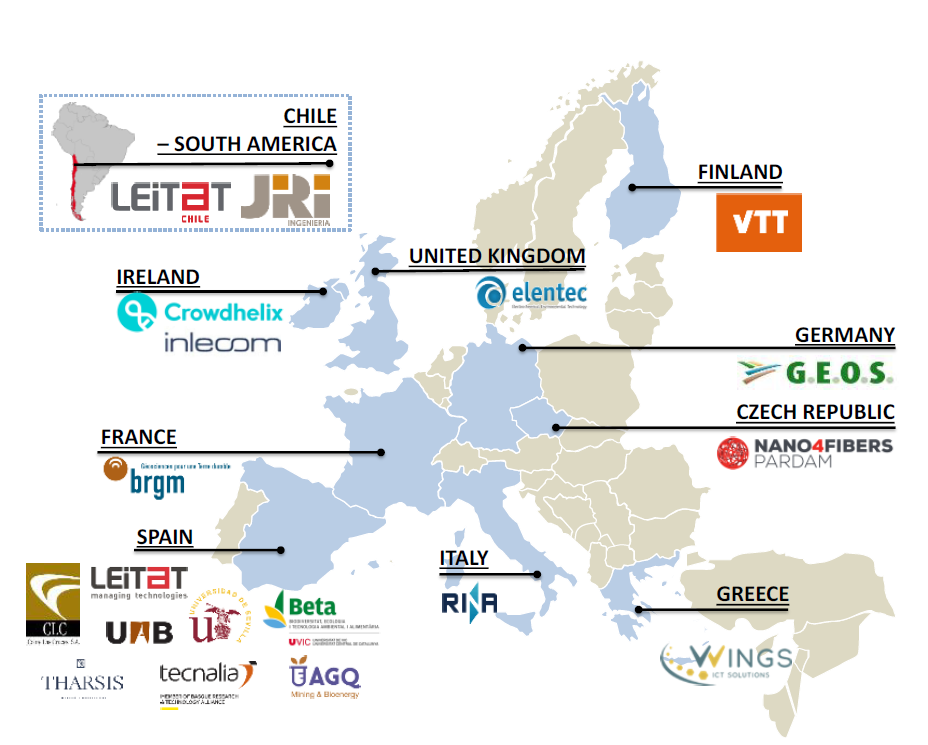RAWMINA H2020 PROJECT LAUNCHED
Integrated Innovative Pilot System For Critical Raw Materials Recovery From Mines Wastes In A Circular Economy Context
A 42-month EU funded project driven by 19 partners from 9 EU countries, 1 non-EU country and 2 international partners, aiming to develop and demonstrate an innovative pilot system for the clean and sustainable production of non-energy, non-agricultural raw materials from Mine Waste (MW) resources has been launched.
Funded by the EU, RAWMINA project officially started in May 2021. The project addresses major challenges for the international mining industry, and will deliver significant impact across the European Economy, Environment and Social Wellbeing.
Funded by the Horizon 2020 program, under the Grant Agreement nº958252, RAWMINA benefits from an overall budget of about 10.8M€ with an allocated European funding of about 9M€ (see Fig. 1) to be expend in 42 months. European competitiveness is strongly supported with a 26.4% and 30.3% of total budget for innovative SMEs and large industries, respectively. The consortium covers 9 countries (European: Czech Republic, Finland, France, Germany, Greece, Ireland, Italy, Spain; International; Chile, UK) and includes 5 RTOs, 3 universities, 4 large enterprises and 7 SMEs. Coordinated by LEITAT, and involving a prominent industrial partner from Chile, where the world’s largest copper ore deposits exist, the consortium will also leverage the knowledge and support of the Advisory Board members, including expertise from the mining sector in South Africa, Portugal and Turkey.

RAWMINA IN BRIEF
The European Challenge
“Securing access to a stable supply of Raw Materials”
Critical Raw materials (CRMs) are crucial to Europe’s economy. They form a strong industrial base, producing a broad range of goods and applications used in everyday life and modern technologies. CRMs are needed for significant economic and strategical sectors, as for example manufacturing batteries, construction tools, sensors and electronic devices, medical devices, metals, automotive, defence or renewable energy sectors. However, unreliable supply and difficult substitution to CRMs is a growing concern within the EU and across the globe. Currently, the EU relies on the rest of the world for many CRMs such as Antimony (Sb, 100% imported), Cobalt (Co, 32% imported), Germanium (Ge, 64% imported) and Tungsten (W, 44% imported). European reserves and current recycling rates are low (2% for Ge as an example), and recycling rates are substantially insufficient to meet demand.
“This project has received funding from the European Union’s Horizon 2020 research and innovation programme under grant agreement No 958252”.
